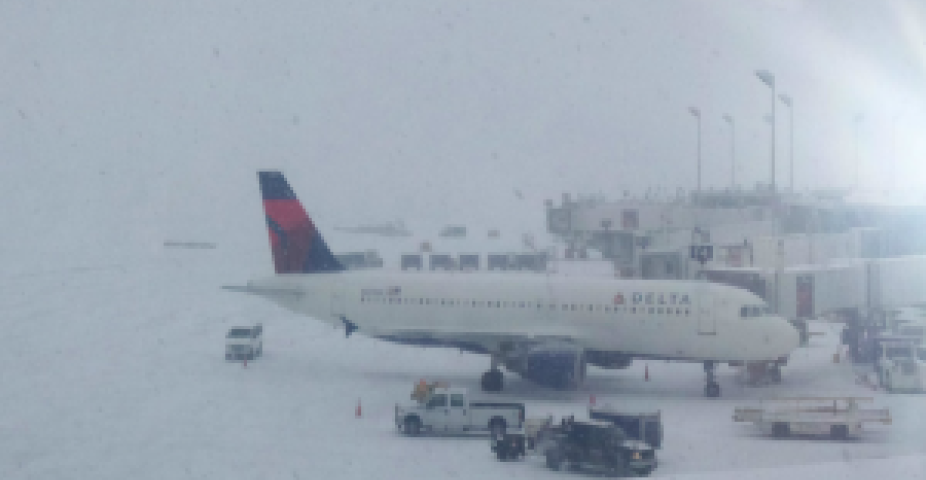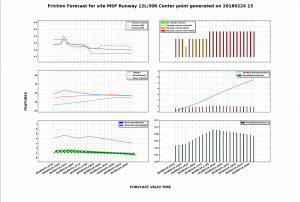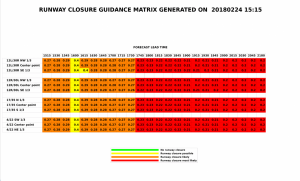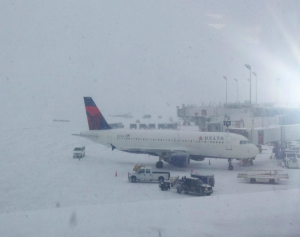Runway Friction and Closure Prediction System (RFCPS)

It’s well known that adverse winter weather can significantly disrupt airport operations. Snow and ice buildup on the runways reduces the pavement friction and can cause airplanes to slide upon landing or takeoff. When the surface friction falls below certain levels, runways must be closed in order to keep planes safe. The safety and efficiency of airport and flight operations hinges on timely and accurate weather forecasts that can also give an indication as to when the runway friction is reduced to the point where runways must be closed. Therefore, having an accurate forecast of runway friction can help airport managers make better decisions on when and how long to close runways.
Until recently, the airport community has relied on conventional methods for acquiring and applying weather-related runway friction information in the runway closure decision process usually from multiple sources. Minneapolis–Saint Paul International Airport (MSP) experiences several winter storms each season where the runways must be closed due to a loss of runway friction. As a result, MSP contacted the National Center for Atmospheric Research (NCAR) for help in automating the procedure for recording and relating friction observations to runway closure times. NCAR entered into a contract with MSP in the fall of 2017 to develop an initial Runway Friction and Closure Prediction System (RFCPS). The system provides a forecast of runway friction values and runway closure alerts from 0 to 6 hours at 15-minute temporal resolution.
The initial RFCPS prototype system relies on data processing and machine learning techniques developed at NCAR. The RFCPS uses a backend forecast engine combined with machine learning modules and rules of practice to predict runway friction and runway closures alerts. The friction values are combined with rules of practice to predict runway closure alerts. The RFCPS technology can be applied at any airport that has runway frictions issues during adverse winter weather. For example, NCAR will also be working with Denver International Airport (DEN) over the next several years to develop a runway friction prediction system at the airport.
The initial RFCPS predicts runway friction values out to 6 hours at 15-minute lead-times. The system currently updates every hour but will be modified to update sub-hourly considering the latest runway friction measurements (observations). The system provides output in several formats: a pdf containing multi-panel forecast plots for each 1/3 segment along a runway; a combined csv file that contains the same forecast data that goes into the pdf multi-panel plots, but in comma separated text format; and lastly a runway closure guidance matrix, which shows friction values and closure alerts for each runway segment in a grid displaying forecast lead-times (a quick way to show when a runway closure is most likely and on what runway).


